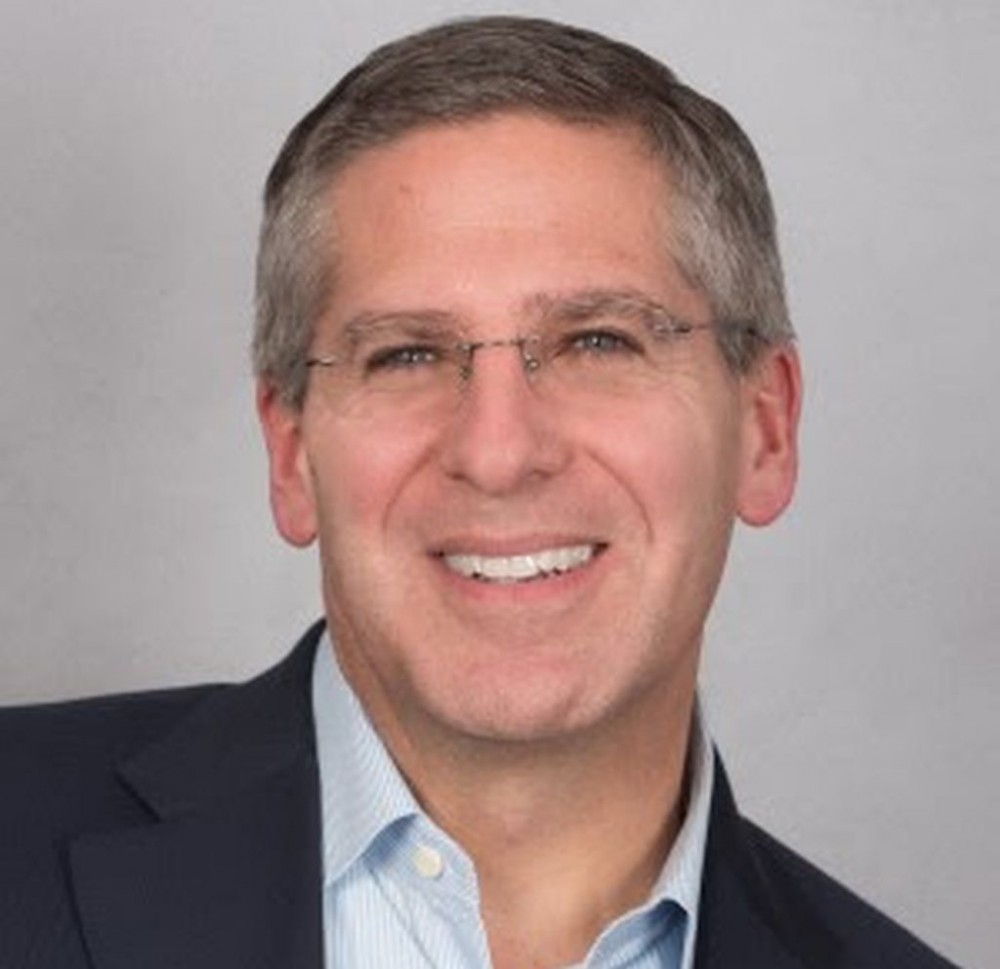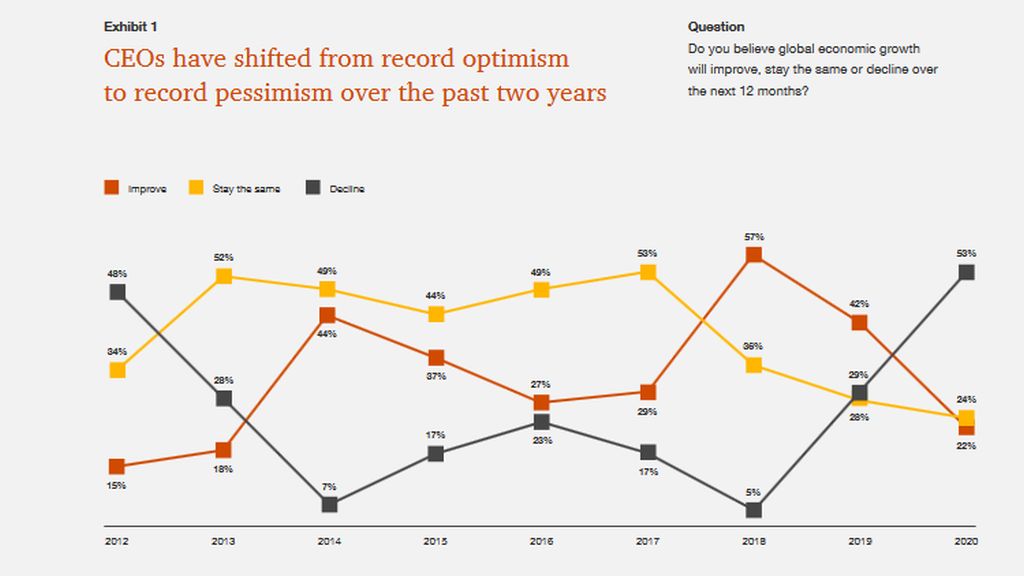CEOs are showing record levels of pessimism over the 2020 global economy growth, according to PwC’s 23rd CEO Global Survey launched on Monday at the World Economic Forum Annual Meeting in Davos, Switzerland.
The percentage of those predicting a slowdown in the global economy is the highest since we started asking this question in 2012. Thus, 53% are predicting a decline in the rate of economic growth in 2020, up from 29% in 2019 and just 5% in 2018. At the same time, the number of CEOs projecting a rise in the rate of economic growth dropped from 42% in 2019 to only 22% in 2020.
“Given the lingering uncertainty over trade tensions, geopolitical issues and the lack of agreement on how to deal with climate change, the drop in confidence in economic growth is not surprising – even if the scale of the change in mood is,” said Bob Moritz, Chairman, of the PwC Network.

CEO pessimism over global economic growth is particularly significant in North America, Western Europe and the Middle East, with 63%, 59% and 57% of CEOs from those regions predicting lower global growth in the year ahead. In contrast, the most optimistic are Central and Eastern Europe (CEE) CEOs, 43% of them predicting a decrease in the growth rate.
"The CEOs in Romania are more pessimistic than their counterparts in Central and Eastern Europe and even at the global level. For 2020, 57% believe that the global economy growth will slowdown, compared to 38% in 2019. CEOs concerns about a slower growth of the global economy are also reflected in the predictions for their companies’ evolution, being less confident in the growth prospects for this year, compared to 2019. The causes of this change of perception will be analyzed and presented in the near future, when we will publish the CEO Survey for Romania”, said Ionut Simion, Country Managing Partner of PwC Romania.

CEOs are also not so positive about their own companies’ prospects for the year ahead, with only 27% of CEOs saying they are “very confident” in their own organisation’s growth over the next 12 months – the lowest level we have seen since 2009 and down from 35% last year.
While confidence levels are generally down across the world, there is a wide variation from country to country, with China and India showing the highest levels of confidence among major economies at 45% and 40% respectively, the US at 36%, Canada at 27%, the UK at 26%, Germany at 20%, France 18%, and Japan having the least optimistic CEOs with only 11% of CEOs very confident of growing revenues in 2020.
Analysing CEO forecasts since 2008, the correlation between CEO confidence in their 12-month revenue growth and the actual growth achieved by the global economy has been very close (see exhibit4 in notes). If the analysis continues to hold, global growth could slow to 2.4% in 2020 below many estimates including the 3.4% October growth prediction from the IMF.
Top concerns in 2020: Excessive regulation, trade conflicts and uncertain economic growth
In 2019 when asked about the top threats to their organisations’ growth prospects, uncertain economic growth ranked outside the top ten concerns for CEOs at number twelve. This year it has leapt to third place, just behind trade conflicts – another risk that has risen up the CEOs agenda – and the perennial over-regulation, which has again topped the table as the number one threat for CEOs.
Policing cyberspace
Globally over two-thirds of CEOs believe that governments will introduce new legislation to regulate the content on both the internet and social media and to break up dominant tech companies. A majority of CEOs (51%) also predict that governments will increasingly compel the private sector to financially compensate individuals for the personal data that they collect.
The upskilling challenge
While the shortage of key skills remains a top threat to growth for CEOs and they agree that retraining/upskilling is the best way to close the skills gap, they are not making much headway in tackling the problem with only 18% of CEOs saying they have made “significant progress” in establishing an upskilling programme.
Climate change – challenge or chance?
Although climate change does not appear in the top ten threats to CEOs’ growth prospects, CEOs are expressing a growing appreciation of the upside of taking action to reduce their carbon footprint. Compared to a decade ago, when we last asked this question, CEOs are now twice as likely to “strongly agree” that investing in climate change initiatives will boost reputational advantage (30% in 2020 compared with 16% in 2010) and 25% of CEOs today compared with 13% in 2010 see climate change initiatives leading to new product and service opportunities for their organisation.
PwC’s 23rd Global CEO Survey was conducted among almost 1,600 CEOs from 83 countries across the world.
Notes:
Download the report at ceosurvey.pwc.
About PwC
At PwC, our purpose is to build trust in society and solve important problems. We’re a network of firms in 157 countries with over 276,000 people who are committed to delivering quality in assurance, advisory and tax services. Find out more and tell us what matters to you by visiting us at www.pwc.com.
PwC refers to the PwC network and/or one or more of its member firms, each of which is a separate legal entity. Please see www.pwc.com/structure for further details.
For more information on PwC Global CEO Survey, download the full study from https://www.pwc.com/gx/en/ceo-agenda/ceosurvey/2020.html or view the attached document below:


































